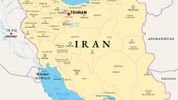Wild, unruly, rowdy, troublesome, riotous, troublesome? What do we really mean by disruptive? Arguably the washing machine was more life-changing than most current technologies as it freed up the lives of many house-tied women to challenge the monopoly men held on jobs, careers and self-fulfillment!
Let's say it is the process of radically re-configuring a particular field of business or public sector service.
Healthcare is crying out for such re-configuration as the two models palpably faui expectations.US healthcare is outrageously expensive and inefficient whilst Britain's NHS "free at the point of delivery" system can only survive by rationing even though it is far more efficient that the bloated US model.
A combination of Big Data & Small Data Analytics , IoT, wearables and "self-service" monitoring with telehealth can make the disruptive changes that both models desperately need. But there is a sting in the tail.
Change means cultural and behavioural change as well as technology innovation. US physicians and surgeons not using every possible dollar of insurance cover to "over-spec" the treatment and operation. British medical staff resisting the productivity initiatives and maintaining restrictive practises.
That is why technology is often disruptive when it need not be because people resist change often the result of it being poorly planned and explained.
Productivity is an essential goal of all sectors including healthcare and the technologies explained below a driver of efficiency. But also of better service and outcomes.
Data, and analytics that help healthcare professionals do their jobs better are key drivers to healthier populations. Innovation without disruptions beckons for those managers, consultants and vendors that embrace the knowledge and skills of nurses, physicians, surgeons, social workers, emergency services and support staff. It is no use thinking only of making better decisions it is these people who have to execute them.
15% of U.S. tech leaders see biotech/digital health/healthcare IT as the most disruptive consumer-driven technology in the next three years. 13% of U.S. tech leaders predict data and analytics will be the most disruptive enterprise technology in three years. Global tech leaders predict cloud computing (11%), mobile platforms and apps (9%), Internet of Things (IoT)/machine-to-machine (M2M) (9%) and data and analytics (9%) will be the most disruptive technologies over the next three years.









